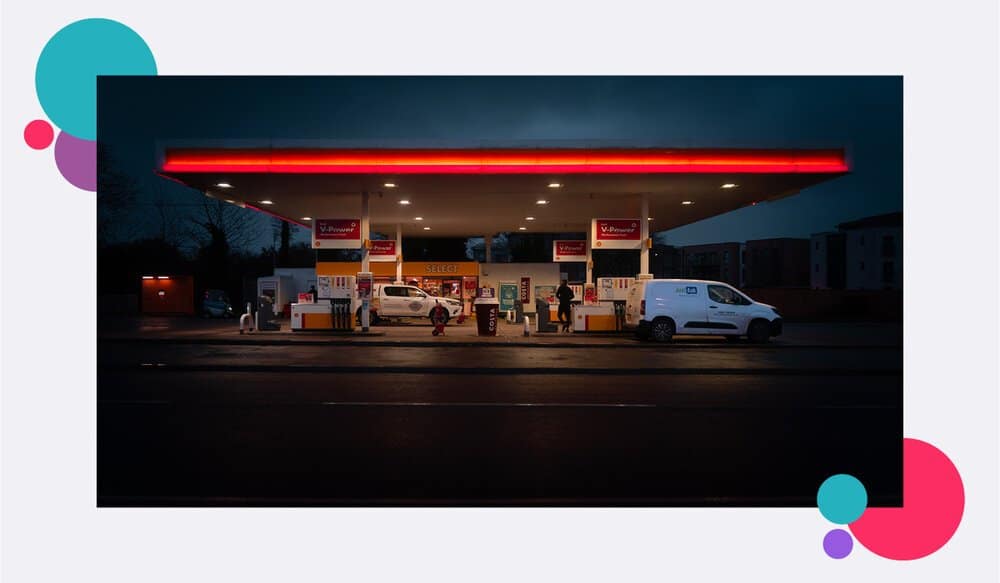
In sectors such as security, transport, health and social care, retail, hospitality, cleaning, and maintenance, the risk of working alone can combine with the risks of working out of hours.
The risks of working ‘unsociable’ shifts or ‘lates’ include: working while tired, working in low-lighting, working with less supervision, and –in some cases– working with people under the influence of alcohol or drugs.
In this article, we’ll provide advice on your responsibilities towards those who work alone in out of hours roles –and what you can do to keep them safe.
The TUC (Trade Unions Congress) found that the UK has 3.1 million workers regularly working night shifts, an increase of 5% in the previous five years.
For workers doing night shifts or working out of hours, there can be an increased risk of danger, as well as a lower rate of supervision.
Risks of working late and unsociable hours include:
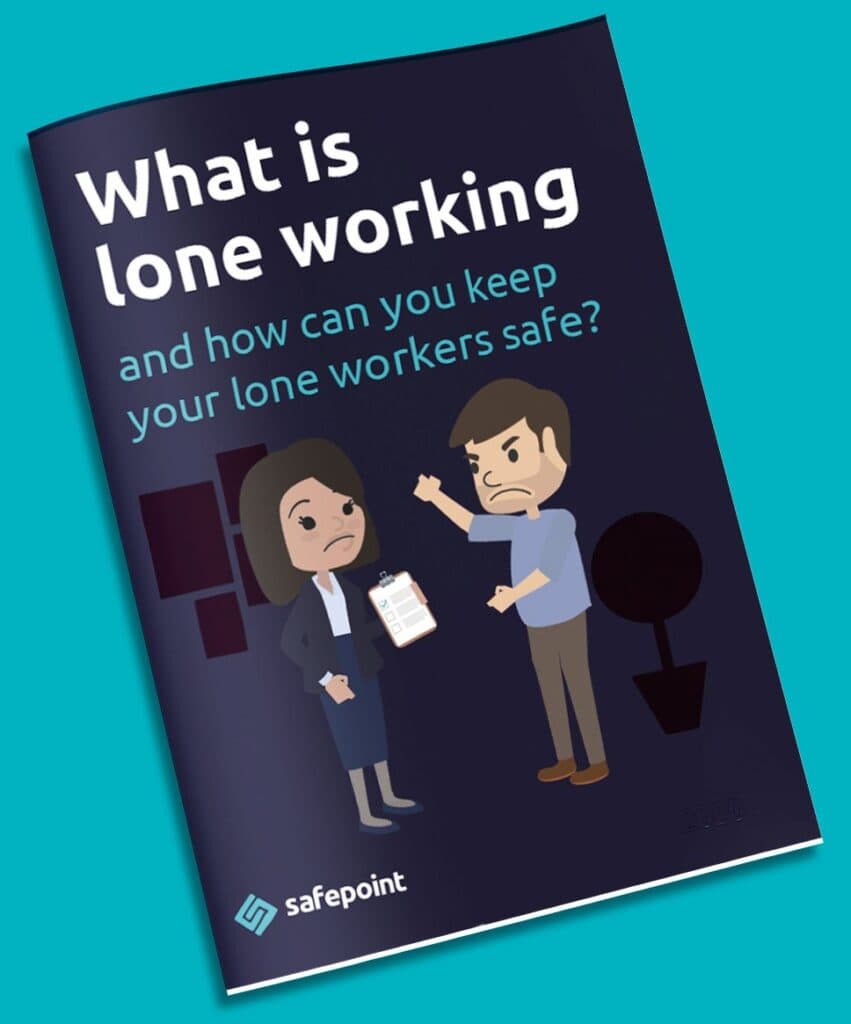

Lone workers doing night shifts or operating out of hours are placed under additional strain, fatigue, and pressure as a result of working outside of ‘traditional’ hours.
There are many wellbeing-based arguments for providing extra support for out of hours workers, but there are also clear legislative reasons.
According to the UK’s Health and Safety Executive, working unsociable hours is a known risk factor for lone workers. They also make it clear that organisations have a legal responsibility to take extra precautions to protect staff working unsociable hours.
For example, fatigue is one of the primary consequences of out of hours work, and according to the HSE, “Fatigue has also been implicated in 20% of accidents on major roads and is said to cost the UK £115 – £240 million per year in terms of work accidents alone.”
It should also be noted that employees also have a responsibility to work safely, but to do this employers must give these workers the correct training, equipment and support.
To protect lone workers in hour of hours roles, you will need to conduct specific risk assessments for their circumstances. Even if you have already assessed a role under typical office hours, you will need to look into the risks and hazards specific to late night working. Consider these workers’ levels of fatigue, environmental risks, response times, oversite, and interaction with the public.
Imagine a carer working overnight in a service user’s home. The carer might be fatigued and unable to pick up on cues, the client may be in a different state of mind late at night, and the carer’s colleagues and supervisor may all be asleep. These are all considerations you need to address in a risk assessment.
After you have created your risk assessment, there are some changes you may want to implement to help protect your out of hours staff:
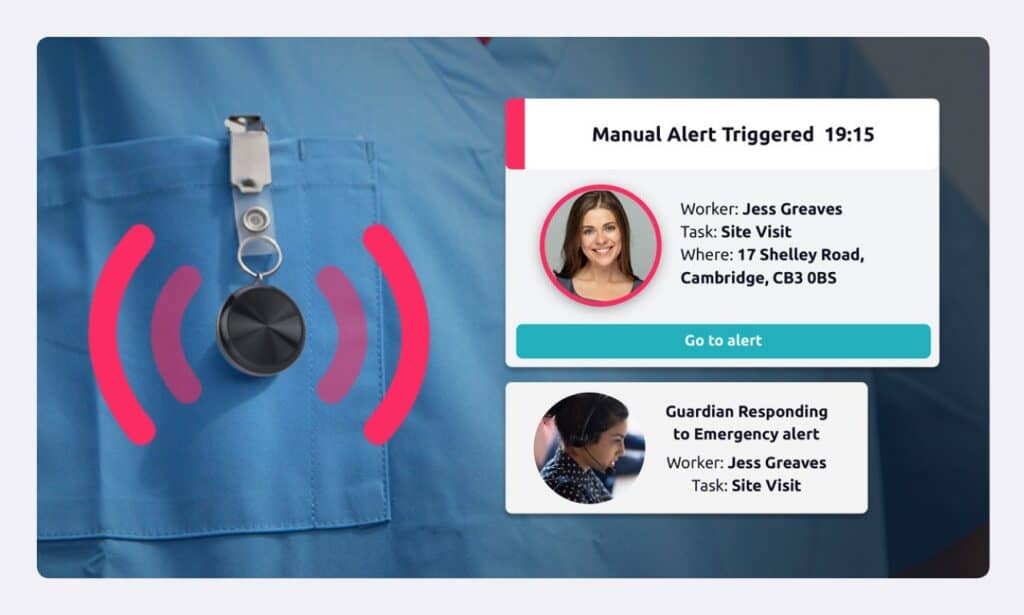
The UK’s Health and Safety Executive requires employers to provide their lone workers with ‘adequate and reliable means of communication and a way to call for help’
Of course, many out-of-hours roles do not allow for workers to simply call out in the case of an emergency. There may be very few people about, and the lone worker may be the only one of their team who is awake, let alone in the area.
That’s why Safepoint provides smart solutions for those working alone. With Safepoint’s clever apps and panic alarms, your staff can quickly and discreetly call for help with just the tap of a button. (The Safepoint solution will also automatically call for help if the staff member has a fall or is unresponsive!)
As soon as your staff signal they’re in trouble, Safepoint’s team of 24/7 emergency responders will call from our accredited Alarm Receiving Centre. After checking in, they will handle the situation in whatever way necessary –from contacting the staff member’s supervisor, to calling the emergency services.
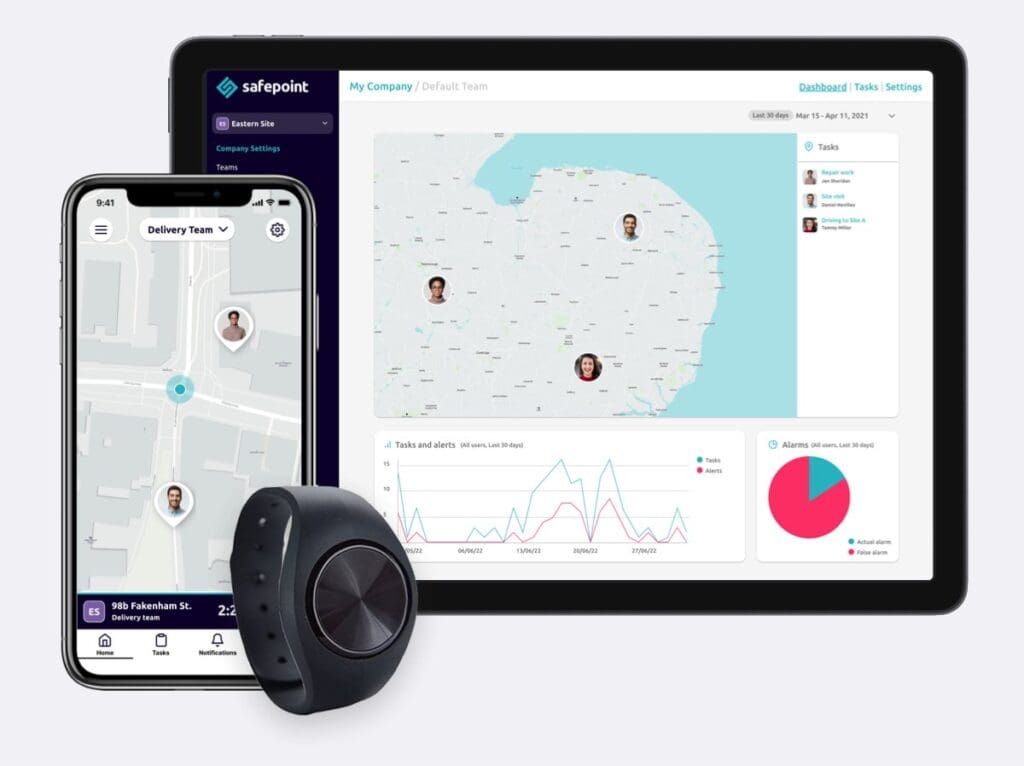
If your team members often work late or unsociable hours, it can be difficult to keep track of them. Whether it’s couriers making deliveries, security guards making rounds, or carers making visits, it can be difficult keeping track of where everyone is and what they’re up to.
That’s why Safepoint have recently brought team management features into their lone working app. As a supervisor or manager, you can just open your Safepoint app and see a live map of all your team, all in one place. You can even see what tasks your team are working on, and when they’ll be done.
You can even drop your team members a note, or bring up their number and call them –all from the app!
Safepoint’s team logistics features can be a real lifesaver for keeping track of today’s increasingly mobile and flexible workforce.
All sorts of businesses rely on Safepoint’s lone worker solutions and 24/7 Alarm Receiving Centre to keep their staff protected and organised. Some organisations that use Safepoint for late night and unsociable hour shifts include:


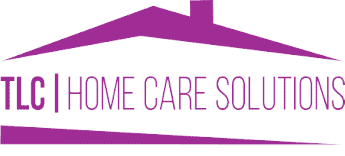


Award-winning safety management tools and a fully accredited response team.